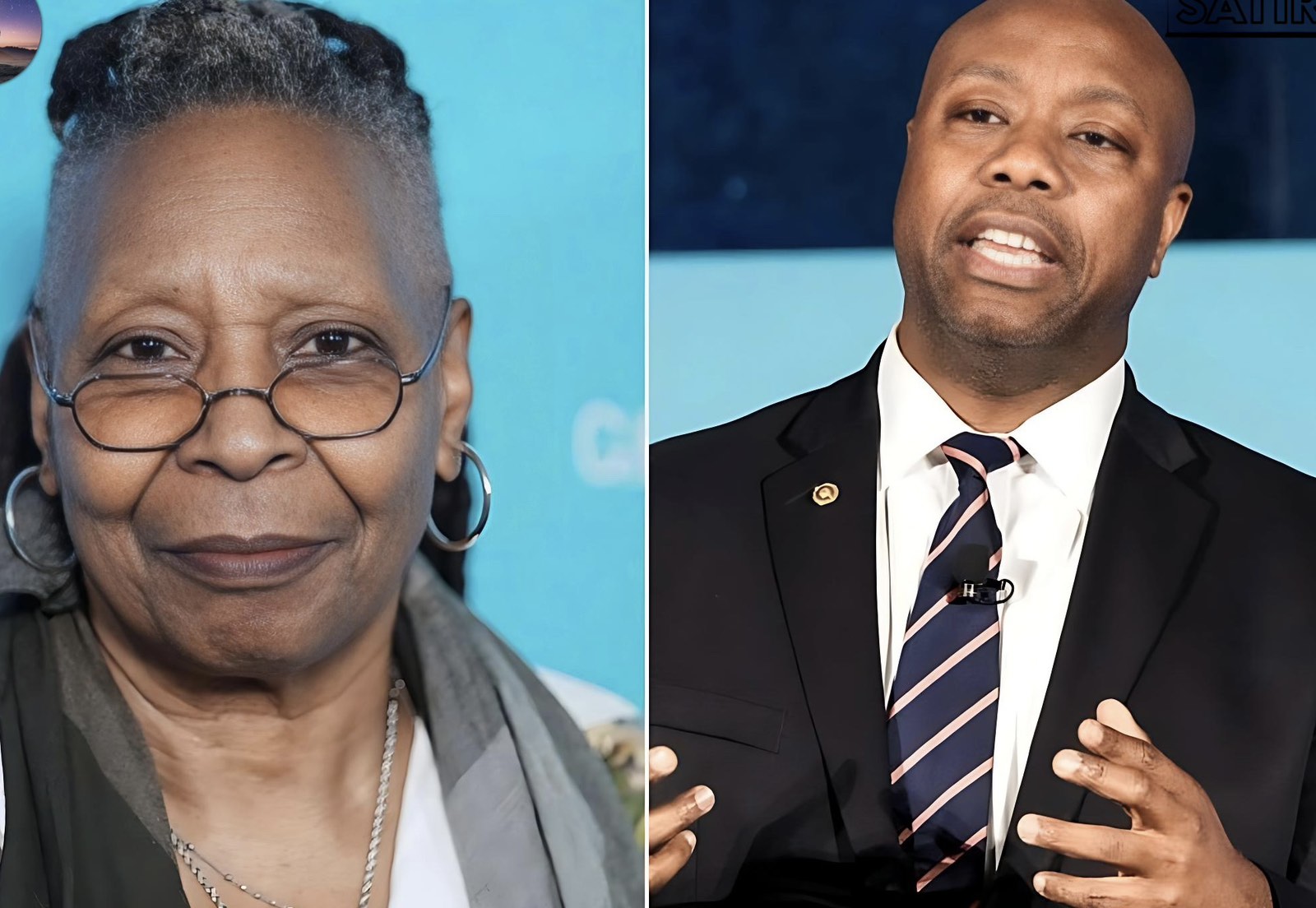In a surprising turn of events blending celebrity, politics, and reputational challenges, Whoopi Goldberg, renowned actress and co-host of “The View,” has filed a $10 million lawsuit against Senator Tim Scott. The legal action stems from an episode where Scott allegedly labeled Goldberg as “toxic,” sparking a legal and public relations battle that underscores the complexities of public discourse and personal reputation in the media spotlight. Whoopi Goldberg, a prominent figure known for her candid opinions and advocacy, has been a fixture in American entertainment for decades. Her multifaceted career has not only garnered critical acclaim but also provided her with a platform to voice her views on various societal issues. Against this backdrop, Senator Tim Scott’s purported characterization of Goldberg as “toxic” has generated significant controversy and led to this high-profile lawsuit.
The incident has ignited debates surrounding free speech, the boundaries of public discourse, and the impact of words on an individual’s reputation. Goldberg contends that Scott’s remark was not only baseless but also damaging to her personal and professional standing. The lawsuit represents her efforts to seek justice and push back against what she perceives as a malicious attack on her character. Central to Goldberg’s legal argument is the assertion that Scott’s comment was not a mere critique of her political positions but a deliberate attempt to harm her reputation. The lawsuit details the fallout from Scott’s remark, citing a wave of negative publicity, social media backlash, and professional setbacks that Goldberg attributes directly to the senator’s statement. By seeking $10 million in damages, Goldberg aims to hold Scott accountable for the consequences of his words.
Senator Tim Scott has vehemently denied any wrongdoing, framing his comment as a critique of Goldberg’s political views rather than a personal attack. His defense underscores the complex interplay between political commentary and personal reputation in the realm of public discourse, raising questions about the boundaries of free speech. The lawsuit has sparked intense public debate, with supporters of both Goldberg and Scott weighing in on the case. Goldberg’s advocates argue that the lawsuit is a necessary step in holding public figures accountable for their statements, particularly when those statements have tangible repercussions. Conversely, Scott’s supporters view the lawsuit as an infringement on free speech, arguing that political figures should be able to express their opinions without fear of legal retribution.
Beyond the individuals involved, the lawsuit touches on broader societal issues, prompting discussions about the impact of words, the responsibilities of public figures, and the mechanisms for protecting one’s reputation. It underscores the challenges of navigating public discourse in an era where digital communication amplifies the consequences of words spoken in the public sphere. As the lawsuit unfolds, it serves as a microcosm of the broader debates shaping contemporary discourse. It challenges us to consider the implications of our words, the obligations of those in the public eye, and the legal frameworks that govern speech in the public domain. Ultimately, the case will likely set precedents that could have lasting implications for how public figures engage in political dialogue and how their statements are interpreted and protected under the law.

